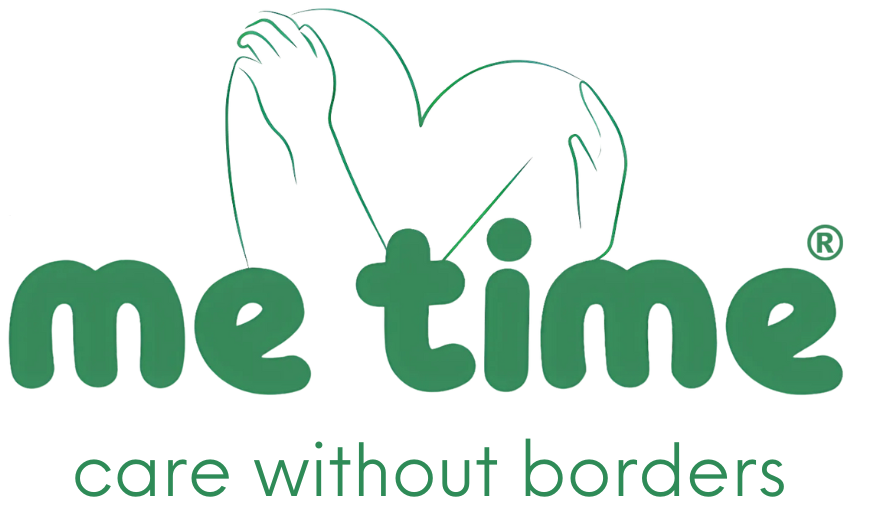Exclusive Offer: Enjoy Free CARA for All Users
Gabrielle Kleygrewe, Clinical Psychologist
|
November 22, 2022
Personal Space: The Invisible Boundary That Shapes Our Lives

Have you ever felt uneasy when someone stood too close to you or pried into your private life? That discomfort comes from a breach of personal space—a concept that defines the invisible boundaries we create to feel safe and respected. Personal space is vital for our well-being, and understanding its importance can help us navigate relationships, interactions, and daily life more effectively.
## What Is Personal Space?
Personal space is the "bubble" around us that defines how much proximity we allow from others—physically, emotionally, or socially. It acts as a shield that protects our sense of individuality and security. Often referred to as a "second skin," this boundary can expand or contract depending on who we interact with, our cultural norms, and the context.
For example, you likely feel more comfortable sharing close proximity with family members than with strangers. This balance between closeness and distance helps us maintain healthy relationships and respect for one another.
## Types of Personal Space: Understanding the Layers
Personal space goes beyond physical closeness. It encompasses six distinct types, each addressing different aspects of our lives:
### 1. Physical Space
This is the most basic and tangible form of personal space. It defines the distance we keep between ourselves and others in various social settings. Physical space is divided into four zones:
Intimate Zone (0–18 inches): Reserved for close family, partners, and best friends. Personal Zone (18 inches–4 feet): Used for casual acquaintances, colleagues, and distant relatives. Social Zone (4–12 feet): Appropriate for strangers or formal interactions. Public Zone (12+ feet): Maintained in speeches, presentations, or crowded public areas. The discomfort we feel in packed elevators or when someone stands too close highlights the significance of respecting physical boundaries.
### 2. Verbal Space
Verbal space involves the boundaries we set in conversations. For instance, we expect others not to ask invasive questions or pry into our private lives. Similarly, respecting another person’s verbal boundaries fosters trust and mutual respect.
### 3. Sexual Space
Sexual boundaries are crucial for intimate relationships. These limits vary between individuals but require open communication and consent. Even in close relationships, partners should respect each other’s need for privacy and personal autonomy.
### 4. Financial Space
Money is a sensitive topic for many, and financial boundaries help maintain privacy regarding income, debts, and investments. Unwelcome questions about someone’s financial status can easily cross these boundaries.
### 5. Emotional/Mental Space
This space governs how and when we share our feelings or opinions. While close friends or family may have access to our emotions, work settings or casual acquaintances might not. Respecting emotional boundaries helps maintain professionalism and healthy relationships.
### 6. Internal Space
Internal space refers to our personal autonomy—the authority to make decisions about our lives. It includes choices about education, career, and the level of effort we’re willing to invest in others. Maintaining this space prevents others from controlling or influencing our decisions unduly.
## The Rise of Virtual Space
In the digital age, personal space has extended into the virtual realm. Social media platforms, instant messaging, and online interactions have created new boundaries to consider. Virtual space includes:
### Controlling who views your online profiles.
Deciding when to respond to calls or messages. Protecting personal information from data breaches or cybercrimes. As technology evolves, respecting virtual boundaries becomes increasingly important for maintaining privacy and mental well-being.

## Why Is Personal Space Important?
A strong sense of personal space allows individuals to feel safe, respected, and in control. Violations of personal space—whether through physical proximity, intrusive questions, or emotional demands—can lead to discomfort and anxiety. For children, learning to establish and protect personal space is essential for their safety, confidence, and independence.
Unfortunately, many people struggle with boundaries due to societal pressures, personal insecurities, or a lack of awareness. This makes it crucial to educate individuals about the importance of respecting both their own space and the space of others.
Common Challenges to Maintaining Personal Space
Some individuals face difficulties in setting or maintaining boundaries. Common challenges include:

People-Pleasing: Sacrificing personal comfort to avoid conflict or disapproval.
Over-Giving: Continuously giving or taking without mutual respect, leading to unbalanced relationships.
Fear of Saying “No”: Feeling obligated to agree with others, even when it’s inconvenient or harmful.
Social Conformity: Suppressing personal values to fit in with societal expectations.
Silence in the Face of Boundary Violations: Failing to speak up when personal space is crossed, leading to resentment and stress.
Creating a Respectful Society
A society that values personal space is a society that fosters mutual respect and understanding. To achieve this, we must:
Educate ourselves and others about the importance of personal boundaries. Communicate our limits clearly and assertively. Respect the boundaries set by others, whether physical, emotional, or digital.

By recognizing and honoring personal space, we create an environment where individuals can thrive without fear of intrusion or disrespect.
Personal space is an essential part of our lives, shaping how we interact with the world around us. By understanding its various forms and respecting boundaries, we can build healthier relationships, protect our well-being, and contribute to a society that values individuality and mutual respect. Remember, your personal space is yours to define—protect it, cherish it, and encourage others to do the same.

Need support on your wellness journey?
You don't have to wait to talk to someone. Our licensed providers have availability every week, making it easy to start when you're ready.


Need support on your wellness journey?
Whether you're navigating something difficult or simply looking to improve your well-being, our licensed providers are here to help.
You don't have to wait to talk to someone. Our licensed providers have availability every week, making it easy to start when you're ready.



